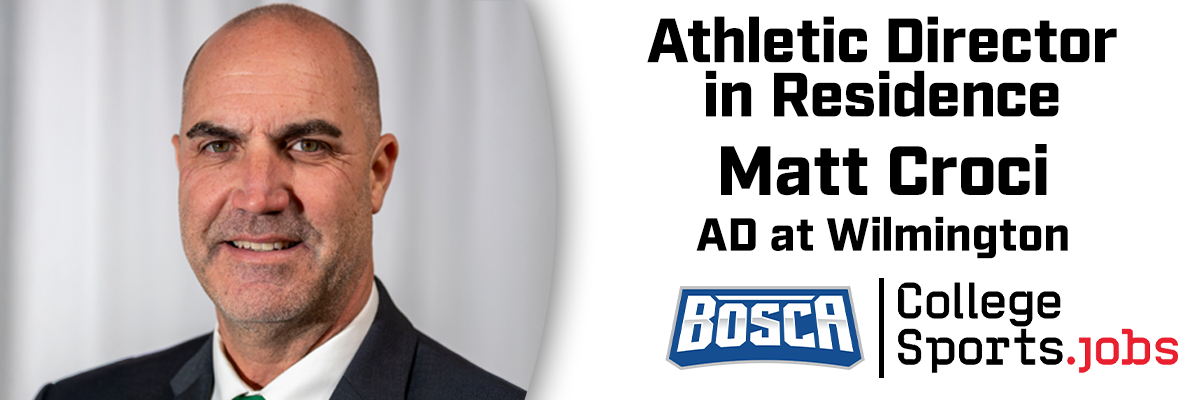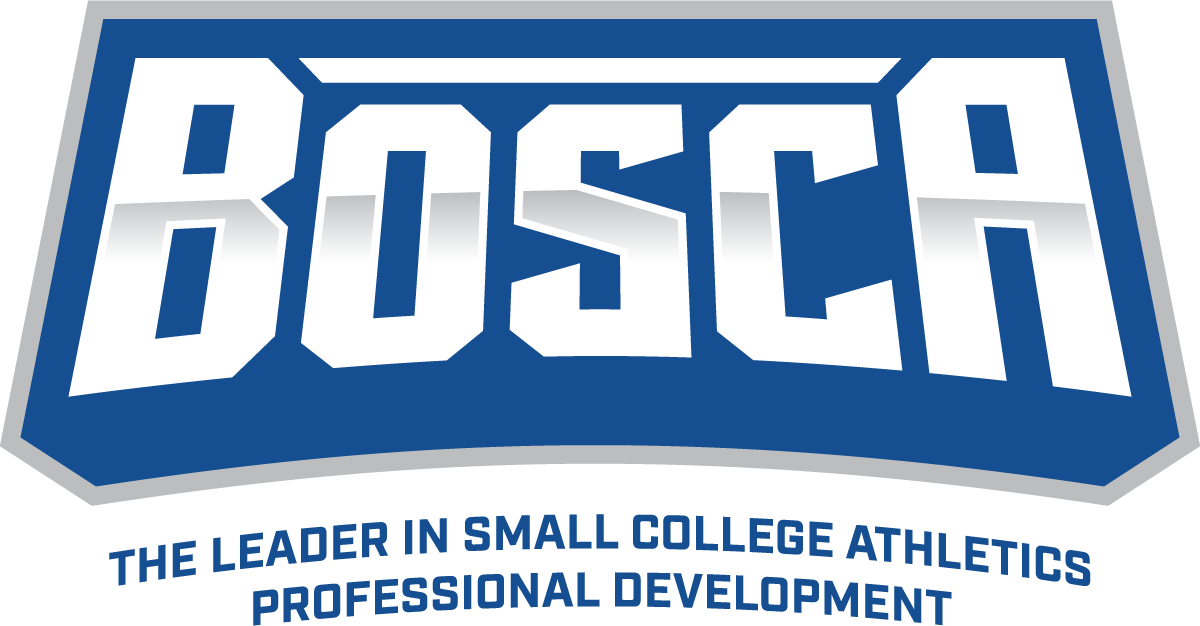AD in Residence: Wilmington AD Matt Croci
Wilmington AD Matt Croci dives into his first year in the chair, the Quakers' record eight-figure gift and more.

What was the biggest challenge you faced through your first year as AD? What was your biggest win in year one? What excites you most heading into year two?
The biggest challenge was getting up to speed on everything immediately. I didn’t start until September 1st, which meant classes had started, fall sports were rolling and winter/spring sports needed support to get their non-traditional days started. The train had left the station on a lot of things, so I needed to support but also stay out of the way a little bit and let our staff and coaches do their jobs while I listened and learned. I think the biggest win was an uptick in morale, building trust and buy-in from the staff.
What excites me most is having that first year under my belt, which is going to allow us to really look at things we can do better and improve on and be more efficient at.
You spent the majority of your career as a Men’s Basketball coach across Division III before stepping into this role. After one year in the AD chair, what would be the most impactful piece of advice you could give yourself on day one as AD?
Reach out to more experienced ADs to pick their brain on the things I may not know yet. I did that to a smaller degree, but I would increase that number significantly. My biggest concern going in was missing something that I didn’t think of as a first-time AD.
What lessons that you learned from your previous eight years as a Head Coach helped you most through your first year in the chair?
There are many similarities in the two roles. The biggest similarity is that it is still all about building relationships and culture, being organized and professional, and communicating clearly. I do feel it helps our coaches to know I did their job for 25 years and know what they’re going through. I want to support and help guide them toward their goals, like we did with our players.
The college recently received a $23 million gift from the late Women’s Basketball Head Coach Jerry Scheve to create a new facility and upgrade a number of things across the department. Walk us through your involvement in soliciting this record gift. What was your initial reaction to the significance of this donation? What will this funding mean for the department in the short and long term?
Jerry stopped by the office a few weeks into my start and we began getting together on a regular basis. We got along well through a lot of shared basketball and life experiences. He wore his passion for Wilmington College on his sleeve and I think he felt comfortable with my interests in the growth of the department. This was a total team effort in the process, with the leadership coming from our President and VP of Advancement. The gift will change the trajectory of our department, affecting all of our programs, people and physical spaces. Everyone will be touched in a positive way. And it goes beyond athletics, as he has invested in other programs on campus as well.
You announced plans to bring back Men’s and Women’s Golf and Tennis in 2026-27 after the sports were discontinued in 2013. What are the biggest hurdles to bringing those programs back online? Are you evaluating more sport sponsorship changes now that the Quakers will sponsor 20 sports?
The return of Golf and Tennis were initially driven by Jerry Scheve and his appreciation for those sports being around while he was coaching. The obvious hurdle are that we’re starting from scratch and you have to literally build the infrastructure from nothing. But that’s also an exciting part. We’ve talked to lots of folks involved in both sports to get advice, planning and ideas on how to do this right. Jerry’s mantra was to “play with the poise and intensity of a national championship team.” So we’re going to build these programs with that in mind.
How are you thinking about best positioning the Quakers amidst the shifts happening across college athletics and higher education?
We’re leaning into who we are, what we do well and what we have to offer student-athletes, instead of trying to be someone we’re not or focusing on what we don’t have. Our coaches are great at this. We have a lot to positives to sell and we’re going to hammer those. We’re a small school with big ideas and growth ahead. Enrollment is up, we’re adding academic programs, we’re improving our facilities. The leadership at the College, from Board to President to Senior staff to departments is aligned and focused on creating the best environment for our kids.

